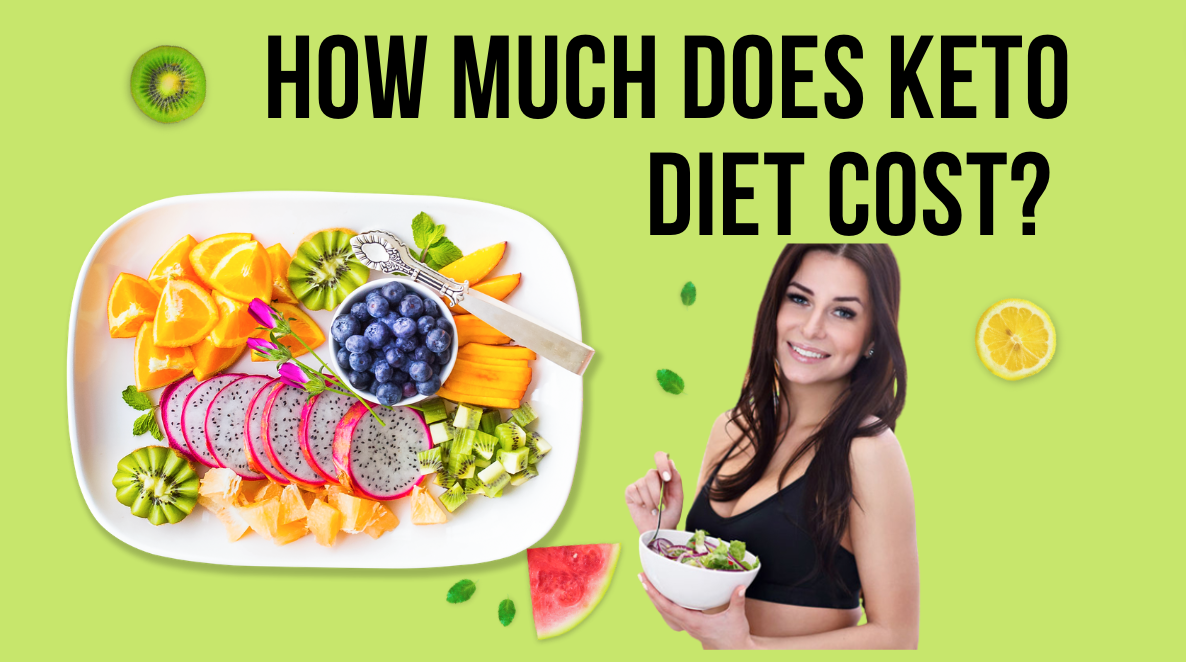How Much Does keto Diet Cost: Breaking Down the Budget
Welcome to the comprehensive guide on the cost of the ketogenic diet, often referred to as the “keto diet.” In recent years, the keto diet has gained immense popularity for its potential to promote weight loss, enhance energy levels, and improve overall well-being. However, like any dietary plan, one crucial factor to consider before embarking on this journey is its financial implications. Understanding the expenses associated with the keto diet is essential for making informed decisions and ensuring that it aligns with your budget and lifestyle.
In this in-depth exploration, we will break down the various aspects that contribute to the overall keto diet cost. From grocery shopping and meal planning to supplementation and dining out, we’ll examine the potential expenditures and discuss strategies to optimize your spending without compromising on the diet’s effectiveness.
Calculating the cost of a keto diet

Calculating the cost of a keto diet involves considering various factors, including grocery shopping, meal planning, supplementation, and dining out. Let’s break down each aspect:
Grocery Shopping and Meal Planning:
Grocery shopping is a significant component of the keto diet cost. Since the keto diet emphasizes low-carb, high-fat foods, your shopping list will typically include items such as meat, fish, poultry, eggs, cheese, nuts, seeds, low-carb vegetables, and healthy fats like avocados and olive oil. While these items may seem costly initially, they often form the foundation of many keto meals and can be used in various recipes.
Supplementation:
While the keto diet encourages obtaining nutrients primarily from food, some individuals may choose to incorporate supplements to ensure they meet their nutritional needs. Common supplements in a keto diet include electrolytes (sodium, potassium, magnesium), omega-3 fatty acids, and vitamin D.
The cost of supplementation can vary based on individual needs and brand preferences. Before purchasing any supplements, consult with a healthcare professional to determine if they are necessary and to find cost-effective options.
Dining Out:
Dining out can be both enjoyable and challenging while following a keto diet. Many restaurants offer keto-friendly options, but they may come with a higher price tag. Meals that include quality proteins and fats are typically more expensive than carb-heavy options.
Understanding the cost factors
Understanding the cost factors of a keto diet will help you identify where your expenses are coming from and make informed decisions to manage your budget effectively. Here are the key cost factors to consider:
- Food choices: The types of foods you choose to include in your keto diet can significantly impact your overall expenses. For example, organic or specialty keto products may be more expensive than conventional options. Selecting high-quality meats, wild-caught fish, and organic vegetables can increase costs compared to cheaper alternatives.
- Nutritional needs: Individual nutritional requirements vary based on factors such as age, gender, weight, activity level, and health goals. Some people may need to consume more calories and nutrients than others, leading to different spending patterns.
- Meal planning: Effective meal planning can help you optimize your spending. Planning your meals and shopping lists in advance can reduce impulse purchases and food waste, ensuring you buy only what you need.
- Seasonal and regional factors: The availability and cost of certain keto-friendly foods can vary depending on the season and your geographic location. Opting for local produce and seasonal items may offer cost advantages.
- Shopping locations: The choice of grocery stores or markets can impact your expenses. Different retailers offer varying prices, discounts, and deals on keto-friendly items.
- Eating out: Dining at restaurants or ordering keto-friendly takeout occasionally can add to your overall expenses. Eating at home is generally more cost-effective, but if you do eat out, choose wisely and consider portion sizes to avoid overspending.
- Processed foods and supplements: While some processed keto products and supplements can be convenient, they often come with a higher price tag. Minimizing reliance on these items and focusing on whole, natural foods can save money.
- Bulk purchases: Buying non-perishable keto staples in bulk can be economical, as it often comes with discounts and saves you from frequent shopping trips.
- Meal prepping: Preparing meals in batches can save time and money. It prevents last-minute purchases and helps utilize ingredients efficiently.
- Kitchen equipment: Transitioning to a keto diet might require investing in specific kitchen equipment or tools, such as a food processor, blender, or keto-friendly baking utensils, which could add to your initial expenses.
Is the keto diet worth the cost?
Deciding whether the keto diet is worth the cost depends on individual circumstances, health goals, and budgetary considerations. While the keto diet has been praised for its potential benefits, including weight loss, improved energy levels, and enhanced mental clarity, it may not be the best fit for everyone. Some people may find the initial expenses associated with purchasing high-quality keto-friendly foods and supplements to be a significant investment.
However, others might see the long-term health benefits and potential savings on medical expenses as a worthwhile trade-off. It’s essential to weigh the potential benefits of the keto diet against your personal financial situation and consider if the diet aligns with your health objectives and dietary preferences.
Additionally, exploring budget-friendly approaches to keto meal planning and being mindful of your spending can make the keto diet more financially sustainable. Ultimately, the decision of whether the keto diet is worth the cost is a subjective one, and individuals should consider their unique circumstances and consult with a healthcare professional before making any dietary changes.
Final Thoughts
In conclusion, while the keto diet may offer significant health benefits and aid in weight loss, it is important to consider the potential costs associated with this dietary approach. The higher cost of quality fats and proteins, coupled with the need for specialized supplements and monitoring, can make following a keto diet more expensive compared to a traditional balanced diet.
However, it is also crucial to weigh these costs against the potential long-term savings on medical expenses and improve overall health. Ultimately, individuals should assess their budget and personal goals before embarking on any dietary regimen. Consulting with a healthcare professional or registered dietitian can provide valuable guidance in navigating the financial aspects of a keto diet while ensuring optimal health outcomes.
FAQs
Do I need to buy expensive supplements for the keto diet?
Supplements are not necessary for a successful keto diet. While some may choose to use them, it’s not mandatory and does not affect the overall cost of following this dietary approach.
Are there cheaper alternatives to popular high-fat foods on the keto diet?
Yes, several affordable substitutes exist for common high-fat foods in the keto diet. For example, coconut oil is often less expensive than MCT oil but provides similar benefits.
Can I save money by meal-prepping on a keto diet?
Meal prepping is an excellent way to save money on any dietary plan, including the keto diet. By cooking in bulk and planning meals in advance, you can avoid unnecessary purchases and reduce food waste.







